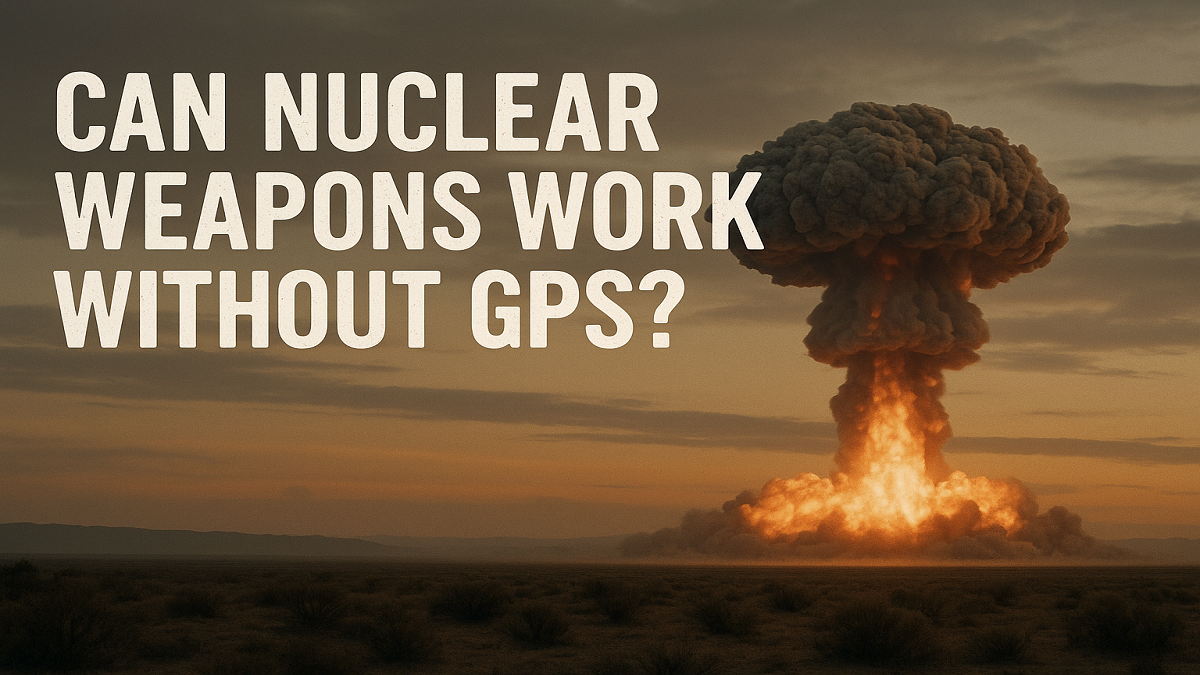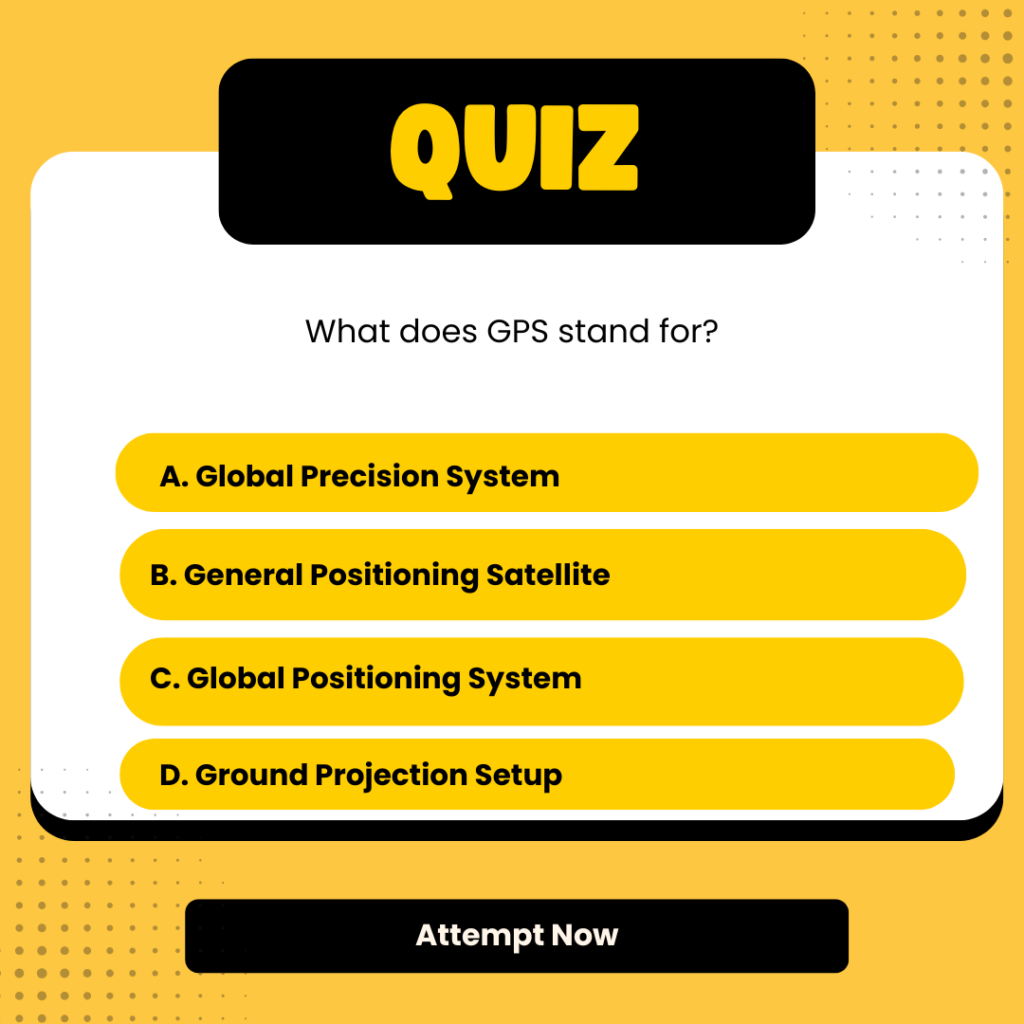Can Nuclear Weapons Work Without GPS?
Yes, but with limitations. During the Cold War, most nuclear missiles used inertial guidance alone. However, they had to carry higher-yield warheads to compensate for inaccuracy.
GPS is not mandatory, but:
- Without GPS = Less accuracy, more collateral damage, less strategic value
- With GPS = High accuracy, lower yields, better deterrence
Some nations also use GLONASS (Russia), BeiDou (China), or IRNSS/NavIC (India) as alternatives to GPS for redundancy and sovereignty.
What Is GPS and How Does It Work in Military Systems?
GPS (Global Positioning System) is a satellite-based navigation system that provides real-time location and timing data anywhere on Earth. It was developed by the U.S. Department of Defense and has become an essential tool in military operations, especially for strategic weapons like nuclear missiles.
GPS works by using signals from a constellation of 24+ satellites to determine precise positioning, which is critical for weapon guidance systems, especially over long distances.
Why Is GPS Important for Nuclear Weapons?
Modern nuclear delivery systems (ICBMs, cruise missiles, submarine-launched missiles) rely on high-precision navigation to hit their intended targets. Here’s why GPS is crucial:
- Pinpoint Accuracy: Nuclear weapons must strike exact locations like missile silos, military bases, or enemy infrastructure.
- Improved Targeting: GPS improves circular error probable (CEP) — the measurement of how close a missile can strike relative to its target.
- Reliable Navigation: Over intercontinental distances, inertial guidance systems can drift. GPS corrects that drift.
- Real-time Updates: Enables mid-course corrections and better engagement with mobile or time-sensitive targets.
How Does GPS Improve Missile Accuracy?
Without GPS, a missile depends solely on inertial navigation systems (INS), which calculate position based on acceleration and rotation. Over time, INS can drift, leading to inaccuracy.
GPS integration allows:
- Course correction in flight
- Guidance toward mobile or hidden targets
- Synchronization with satellites for real-time precision
This reduces the CEP from hundreds of meters to tens of meters, which is significant for nuclear warheads with lower yields or urban targets.
Which Missiles Use GPS for Nuclear Targeting?
Many modern missiles use GPS-aided guidance, especially in dual-capable systems (nuclear/conventional). Examples:
| Missile System | Country | GPS Usage |
|---|---|---|
| Trident II (D5 SLBM) | USA/UK | INS + GPS |
| Minuteman III ICBM | USA | INS + GPS upgrades |
| DF-26 IRBM | China | BeiDou + INS |
| Agni-V ICBM | India | NavIC + INS (planned) |
| Iskander-M | Russia | GLONASS + INS |
Is GPS Vulnerable to Jamming or Spoofing in Wartime?
Yes. In modern electronic warfare, GPS signals can be jammed or spoofed.
To counter this:
- Military GPS uses encrypted signals (M-code)
- Systems integrate INS + star trackers as backup
- Advanced missiles switch to inertial or celestial navigation when GPS is denied
Thus, GPS is important, but not the sole guidance system in strategic-grade weapons.
How Do Countries Use GPS Alternatives for Nuclear Missiles?
| Country | System Used |
|---|---|
| Russia | GLONASS |
| China | BeiDou |
| India | NavIC (IRNSS) |
| USA | GPS (with encrypted military bands) |
Countries develop independent positioning systems to ensure autonomous strike capability, especially during conflicts involving space-based system disruption.
Does GPS Affect Nuclear Submarine Missile Systems?
Yes, especially for SLBMs (Submarine-Launched Ballistic Missiles). Submarines use GPS:
- To determine exact launch coordinates
- To provide updated targeting data before launch
- To integrate with inertial navigation in SLBMs like Trident II or K-4
Without GPS input, SLBMs risk lower accuracy, especially over intercontinental distances.
GPS and Nuclear Command, Control, and Communications (NC3)
In addition to guiding weapons, GPS also plays a role in:
- Timing synchronization for nuclear command networks
- Secure communications and alerts between strategic units
- Coordinated launch sequences during retaliation or first-strike orders
Disruption in GPS could potentially affect nuclear readiness and response times.




 Which Country Officially Uses Two Differ...
Which Country Officially Uses Two Differ...
 Which Valley is known as the Valley of L...
Which Valley is known as the Valley of L...
 Which Country is known as the Land of Co...
Which Country is known as the Land of Co...








